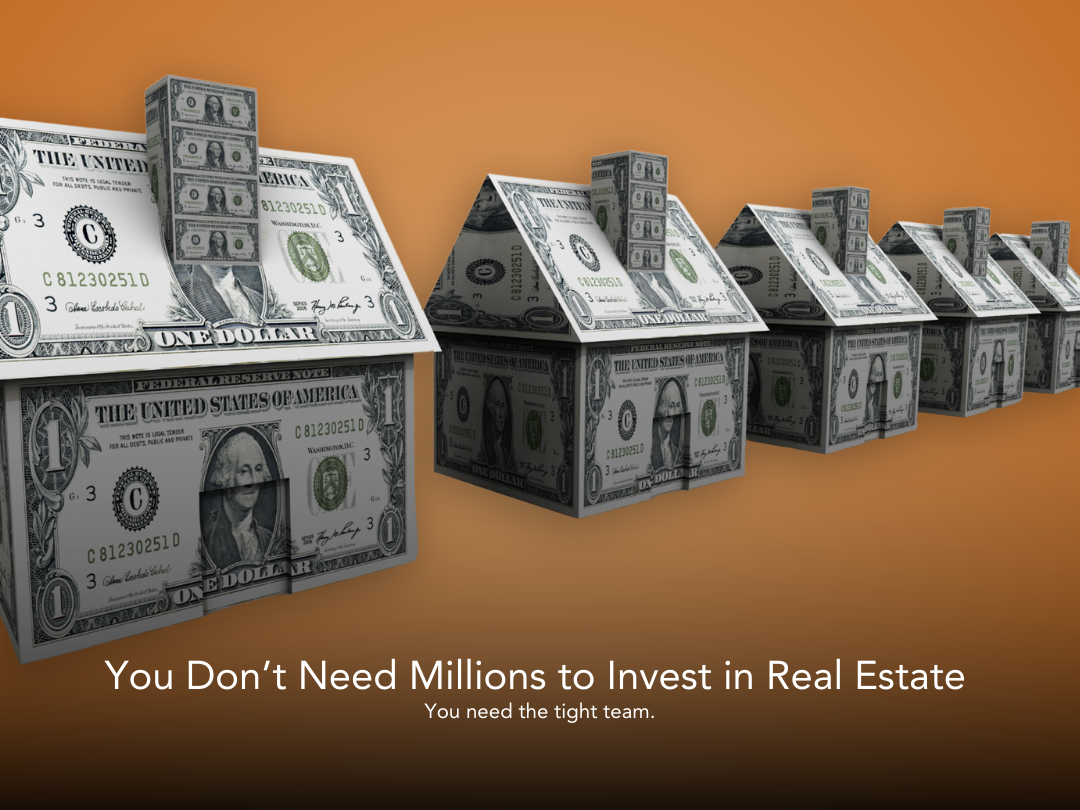A sudden drop in the stock market can be a jarring event, raising concerns about the broader economy and its impact on different asset classes, including real estate. If the stock market were to experience a significant drop—say 30%—many investors and homeowners might wonder: “What will happen to my real estate values?”
Here are several factors to consider when analyzing the potential impact of a stock market crash on real estate:
The Historical Relationship Between the Stock Market and Real Estate
Real estate and the stock market are distinct asset classes, and they don’t always move in tandem. Historically, real estate tends to be less volatile than stocks and often serves as a safe haven during times of stock market turbulence. In some cases, real estate values remain relatively stable even when the stock market takes a dive. This is because real estate is driven more by local supply and demand, interest rates, and other economic fundamentals than by the ups and downs of Wall Street.
That said, during severe financial crises—like the 2008 recession—real estate values can also experience sharp declines, but this is usually tied to broader economic factors like job loss, tight credit conditions, and declining consumer confidence.
Consumer Confidence and Spending
When the stock market drops significantly, consumer confidence often takes a hit. If people feel less wealthy due to stock losses, they may pull back on large purchases, including real estate. This drop in demand can slow down the housing market, particularly in luxury real estate or in markets where buyers are more reliant on stock-based wealth.
However, in many cases, real estate values are more tied to employment, interest rates, and local supply-demand dynamics than they are to stock market performance. If the stock market drop does not lead to significant job losses or higher interest rates, the effect on real estate values may be limited.
Interest Rates and Monetary Policy
In response to a stock market drop, central banks may lower interest rates to stabilize the economy and boost investment. Lower interest rates can make borrowing more affordable, which could actually drive demand for real estate, as mortgages become cheaper. Historically, low-interest rates have supported real estate prices, even during times of economic uncertainty.
On the other hand, if the stock market crash leads to higher inflation concerns, central banks may raise interest rates to keep inflation in check. Higher interest rates typically decrease real estate affordability, putting downward pressure on home prices.
Investor Behavior and Shifts to Safer Assets
In times of stock market volatility, some investors seek safety in more tangible assets like real estate, gold, or bonds. This flight to stability can increase demand for real estate, particularly in markets that are seen as stable or undervalued. Real estate investors looking for steady rental income may be drawn to properties as a safe harbor from the stock market's volatility.
This "safe-haven" effect can be stronger in certain markets than others. For example, high-demand urban markets or regions with a strong economy may see less of a drop in real estate prices, or even a rise, as investors shift their focus from equities to property.
Impact on Commercial Real Estate
While residential real estate may be somewhat insulated from stock market declines, the commercial real estate sector can be more vulnerable. If a stock market crash leads to a broader economic slowdown, businesses may cut back on expenses, lay off employees, or even close, leading to increased vacancy rates in office, retail, and industrial properties. As vacancy rates rise, rental prices could fall, and property values could decline.
However, like residential real estate, the commercial market is highly regional and dependent on the local economy. In areas where demand for commercial space remains strong, the stock market decline may have a smaller effect.
Stock Market Drops as a Leading Indicator of Recessions
A sharp drop in the stock market often signals broader economic challenges. If a 30% drop is a precursor to a recession, real estate values could face a more substantial impact. During recessions, job losses typically increase, and consumer spending drops, which can reduce demand for housing and push prices down.
However, not all stock market crashes lead to recessions, and not all recessions impact the real estate market in the same way. The severity of the impact depends on factors like the duration of the recession, interest rates, and how resilient the local economy and housing market are.
Real Estate’s Relative Stability in a Stock Market Drop
If the stock market were to drop by 30%, the impact on real estate values would depend on a variety of factors, including the state of the broader economy, interest rates, and local real estate market conditions. While some high-end or speculative real estate markets may see a decline in values, more stable, locally driven markets may weather the storm relatively well. In fact, some real estate markets may benefit from a shift in investment as people seek safe, tangible assets.
As always, diversification is key. While a stock market crash may temporarily create uncertainty, real estate remains a long-term investment with intrinsic value that can help balance out the volatility of stocks.
Wondering how your real estate investments could be impacted by stock market fluctuations? Contact 208.properties for insights and strategies to protect your assets and maximize returns.









